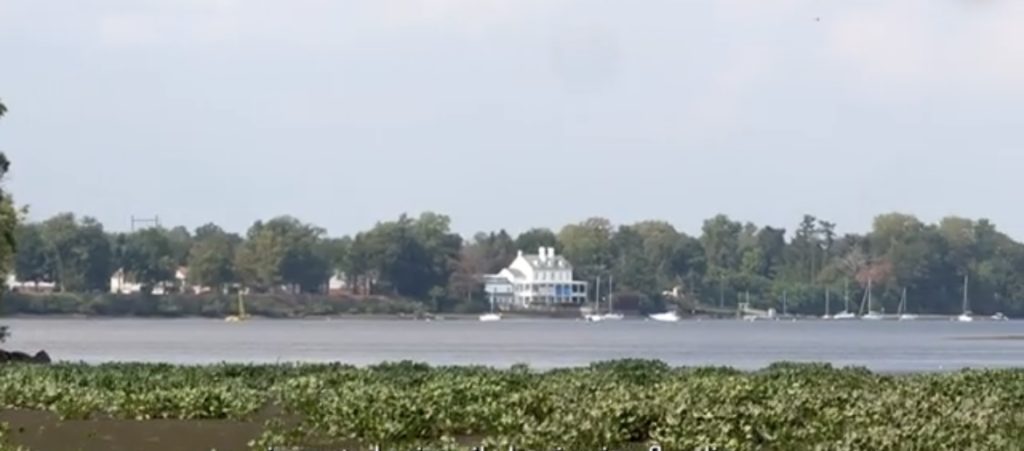
Burlington County towns often impacted by riverine flooding from Rancocas, Assiscunk, and Pompeston creeks – including Cinnaminson, Palmyra and Delran – are getting state aid to essentially help them “evaluate their vulnerabilities.”
“Rainfall that is more frequent and intense, rivers that overflow their banks, like so many New Jersey municipalities, this is the reality for 11 Burlington County communities,” New Jersey Department of Environmental Protection (NJDEP) Commissioner Shawn M. LaTourette said.

That’s going to change with the launch of a resilience project to help the towns assess climate change-related hazards and develop planning efforts that will help them weather the impact of flooding and severe storms, according to Nick Angarone, NJDEP’s chief climate resilience officer.
“Through the state’s coastal management program, we are providing over $650,000 available to us through our partnership with the federal government to help these communities evaluate their vulnerabilities to rising temperatures, increasing flood risks, hurricanes and more, and to make climate-informed, science-based planning decisions for building our resilience in a joint regional climate change resilience effort,” LaTourette explained.
He noted that the resilience project marks the first time the NJDEP is organizing a group of contiguous communities that are not directly along the Atlantic Coast but are impacted primarily by riverine flooding. The help is offered through the NJDEP’s Climate Resilient New Jersey: Municipal Assistance Program, which provides a team of consultants paid by the NJDEP to evaluate vulnerability to current and future climate hazards.
The municipalities battered by creek flooding are Beverly City, Burlington City, Burlington Township, Cinnaminson, Delran, Edgewater Park, Florence, Palmyra, Riverside, Riverton and Willingboro. In September, LaTourette and NJDEP staff toured Beverly and Burlington cities, Delran and Riverside to see the impact of climate change and talk with local officials about resilience planning.

LaTourette said with the launch of the local program, local efforts will align with state climate goals.
“As we continue to see an increase in severe storms and extreme weather, it is critical our communities are prepared,” state Sen. Troy Singleton pointed out. “This assistance will go a long way in improving Burlington County’s resilience and reducing the impact future storms have on our residents.”
Through Climate Resilient New Jersey, the NJDEP has worked for several years to assist municipalities in four coastal regions coordinate climate-planning efforts, an effort that encompasses the highly urbanized northeast region of the state, the Raritan River and Bay Communities Region, and the Long Beach Island and Atlantic County Coastal regions.
The Resilient New Jersey Municipal Assistance Program provides technical assistance to municipalities as they comply with the state Municipal Land Use Law, which requires a climate change-related hazard vulnerability assessment when a community updates the land use element of its master plan.
The 11 towns selected for Resilient New Jersey are also participating in a state process that incentivizes effective land use planning. Nine of them meet the state’s criteria as overburdened communities. All of them will benefit from community engagement with the NJDEP.
“We are thrilled that the DEP has included Delran in this group of smaller communities in need of assistance with our resilience planning,” said its mayor, Gary Catrambone.
For more information, visit https://dep.nj.gov.









